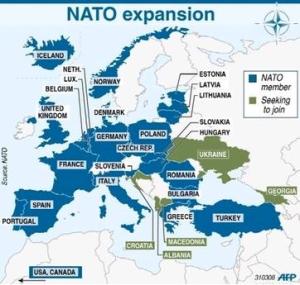Rockefeller Study: Future Dictatorship Controlled by Elite
July 16, 2010
Paul Joseph Watson
Global pandemics that kill millions, mandatory quarantines, checkpoints, biometric ID cards, and a world of top-down government control. These things are not lifted from the latest sci-fi blockbuster movie, they’re part of the Rockefeller Foundation’s vision for what the globe might be like in 15-20 years’ time under a new world order tightly controlled by the elite.
This is one of four scenarios for the future of the planet outlined in the Rockefeller Foundation’s “Scenarios for the Future of Technology and International Development,” a study produced in association with the Global Business Network.
Entitled “Lock Step,” the scenario depicts,”A world of tighter top-down government control and more authoritarian leadership, with limited innovation and growing citizen pushback.”
After global H1N1 pandemic originating from geese infects 20 per cent of the global population and kills 8 million people, the economy grinds to a halt and governments impose authoritarian measures to respond to the crisis.
“During the pandemic, national leaders around the world flexed their authority and imposed airtight rules and
restrictions, from the mandatory wearing of face masks to body-temperature checks at the entries to communal spaces like train stations and supermarkets,” states the study.
Tellingly, even after the pandemic fades, these draconian measures remain in place and even intensify, as leaders take a “firmer grip on power” and citizens willingly sacrifice their sovereignty and privacy, leading to “a more controlled world” bossed by “paternalistic states” who impose biometric ID cards for all citizens. “Enforced cooperation” with global regulatory agreements forges the path towards global governance even as a backlash ensues following public displays of “virulent nationalism”.
Eco-fascism is also brought to the fore in the “lock step” scenario, which discusses how “high-emission” cars will be banned and every home will be forced to install solar panels by law.
The implementation of top-down authoritarianism causes entrepreneurial activity to wither and the economy stutters, but by 2025 people start to grow weary of “so much top-down control and letting leaders and authorities make choices for them” and an organized “pushback” against this tyranny begins to gather momentum.
“Even those who liked the greater stability and predictability of this world began to grow uncomfortable and constrained by so many tight rules and by the strictness of national boundaries. The feeling lingered that sooner or later, something would inevitably upset the neat order that the world’s governments had worked so hard to establish,” the study concludes.
The important thing to understand from the scenario outlined by the Rockefeller study is that China is praised as the model for how governments globally should respond to crises. The most draconian and dictatorial policies, including mandatory quarantines, are praised in the scenario as having “saved millions of lives, stopping the spread of the virus far earlier than in other countries and enabling a swifter post pandemic recovery,” while allowing people freedom of mobility is scorned as having worsened the crisis.
Ironic therefore it is that just this week, the Associated Press reported on how the Chinese government has already virtually imposed checkpoint quarantines on its poorer citizens, by “gating and locking some of its lower-income neighborhoods overnight, with police or security checking identification papers around the clock, in a throwback to an older style of control.”
The Rockefeller study is not a warning against preventing the kind of tyranny contained in this scenario from unfolding, it’s a blueprint for how globalists want to exploit global crises like bio-terror attacks and pandemics in order to completely destroy society and rebuild it under a new world order in their image.
The Rockefeller scenario bears more than a passing resemblance to a 2007 UK Ministry of Defence study which forecast that by 2035, people would have brain chips implanted, that the middle class would become revolutionary, and that society would be gripped by chaos and civil unrest as a result of increased globalization, immigration and a more authoritarian state.
It is crystal clear from reading the “Lock Step” scenario that the oppressive society portrayed in the study is not presented as an admonishment of how governments would cynically seize upon a pandemic to set up a police state and empower themselves as dictators, it’s a ringing endorsement that this approach would be the correct thing to do.
This is the post-industrial society demanded by Bilderberg luminaries like European Commission chief Jose Manuel Barroso.
This is what the globalists want – pandemics, warfare, chaos and crises that they can engineer and then exploit to lock in place a dictatorial society ruled by the elite from their ivory towers, while the citizens are reduced to impoverished, squabbling, dependent peasants tightly controlled with sophisticated big brother technology, far too concerned about where their next meal is coming from to have time to overthrow their new rulers.

